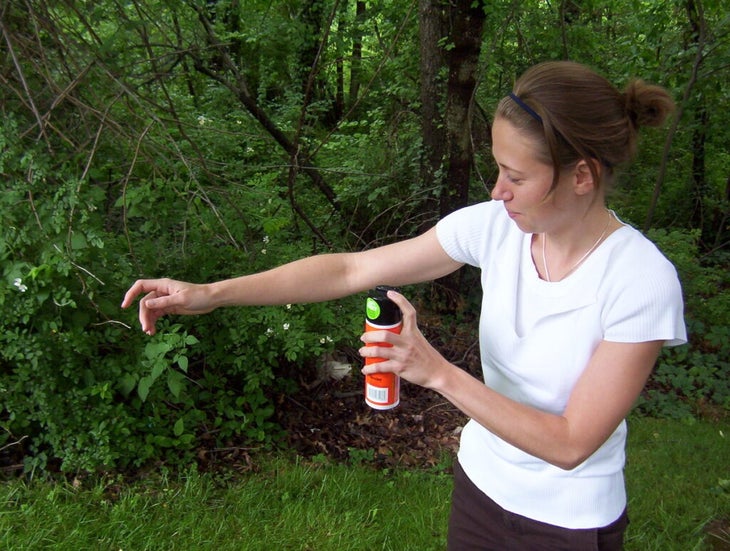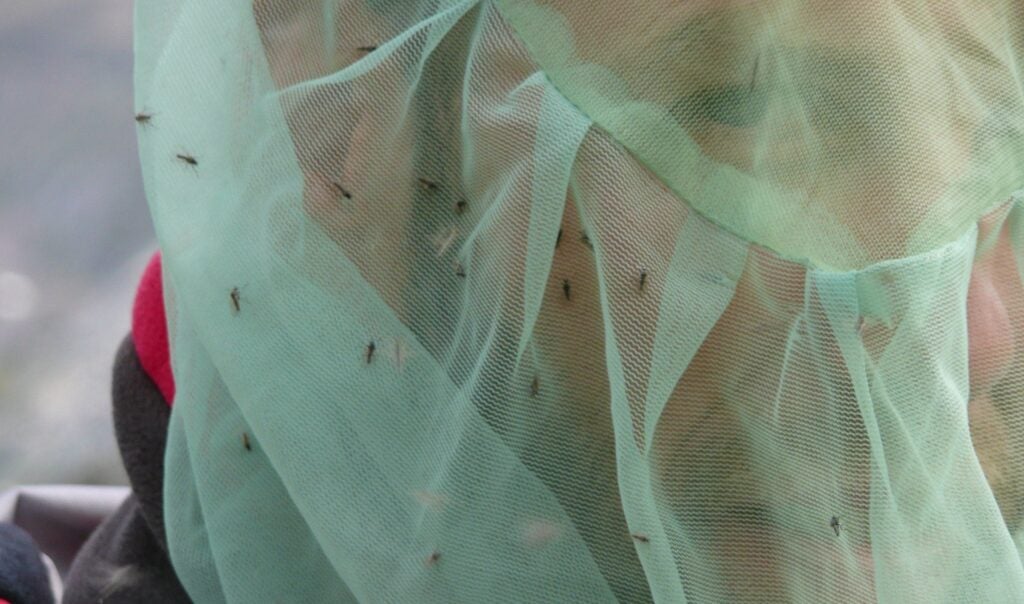No products in the cart.
Outdoor Adventure
These Skincare Products Could Attract Mosquitos
Heading out the door? Read this article on the Outside app available now on iOS devices for members!
Download the app.
Most hikers know not to carry too many scented products into the backcountry—but new research shows it’s not just bears they could be attracting. According to a 2023 paper, perfumes and soaps—especially those with natural, plant-derived scents—can act like mosquito magnets. The same is true of scented deodorants, sunscreens, and other skincare products.
You might read that and be tempted to give up your backcountry hygiene routine altogether. However, research also shows that mosquitos are attracted to the scent of human sweat and BO. So, what’s worse: using mosquito-attracting skincare products, or skipping out on personal hygiene altogether?
To find out, we spoke to G. Mandela Fernandez-Grandon, a UK-based entomologist who studies how smells impact animal and insect behavior. His answer? It’s complicated.
Research shows that mosquitoes are indeed drawn to human byproducts like lactic acid, which we produce naturally and which appears in our body odor. So, the stinkier we get, the more of these compounds we emit—increasing our chances of getting bit.
“Many bacteria on our skin that attract mosquitos thrive on sweat,” Fernandez-Grandon explains. Sweating profusely and going days without showering can help those bacteria flourish—and make you “particularly attractive” to mosquitos. (Drinking alcohol is another way to magnify your stink and bring the ‘skeeters around, he says.)
Maintaining at least some backcountry personal hygiene can reduce your attractiveness to mosquitos, Fernandez-Grandon says, but you do have to be pretty careful about what you use. That’s because lactic acid—as well as other mosquito attractants like cetyl alcohol and citric acid—are commonly found in the very same skincare products made to keep our bodies clean. Using such products is like ringing the dinner bell for female mosquitoes (males don’t bite). And that’s just the fundamental ingredients we’re talking about here. Artificial scents add a whole other layer.

Many skincare products are designed to smell like flowers. Fernandez-Grandon says the “floral volatiles” within these products may attract mosquitoes—but not necessarily to bite you. “A lot of work shows that when mosquitos are looking for flowers, when they’re looking for nectar to feed on, they’re not interested in blood feeding,” he explains. In other words, they’re in a smell-the-roses mindset. And when they discover you’re not a flower, they’re likely to move on.
This may lead you to believe that lathering yourself lavender-scented lotion you may mask your human aroma. But unless it keeps you from breathing (in which case, throw it away immediately) you’ll still be emitting carbon dioxide, which means mosquitos will still be able to detect you.
“When they’re interested in getting a blood meal, we are very attractive and probably a lot more so than something small you might put on your skin,” says Fernandez-Grandon. In other words, if you want to keep mosquitos at bay, you’re better off doing what you can to keep clean; it’ll take more than a little soap residue to negate the mosquito-repelling benefits of minimizing your BO.
There are a few scents you can add that have been proven to repel mosquitoes. The first is citronella oil, extracted from plants and containing a component called PMD (P-menthane-3,8-diol). Cintronella is found in some soaps and balms. The other product, Fernandez-Grandon says, is Avon Skin So Soft, a bath oil which has been found to repel bugs—including both mosquitoes and biting midges. Then there’s good ol’ fashioned DEET, which is still one of the most effective repellents out there.
The takeaway: Try not to wear powerfully scented lotions or sunscreens if you can help it, but also don’t worry about giving up your hygiene routine altogether. When it comes to preventing mosquitoes, it doesn’t matter too much what scents you’ve got on, says Fernandez-Grandon. After all, millions of years of evolution have trained the ‘skeeters to find you eventually.
“A little bit of citric acid…or these other floral compounds is probably not going to throw them off the goal,” he says.
Source link

